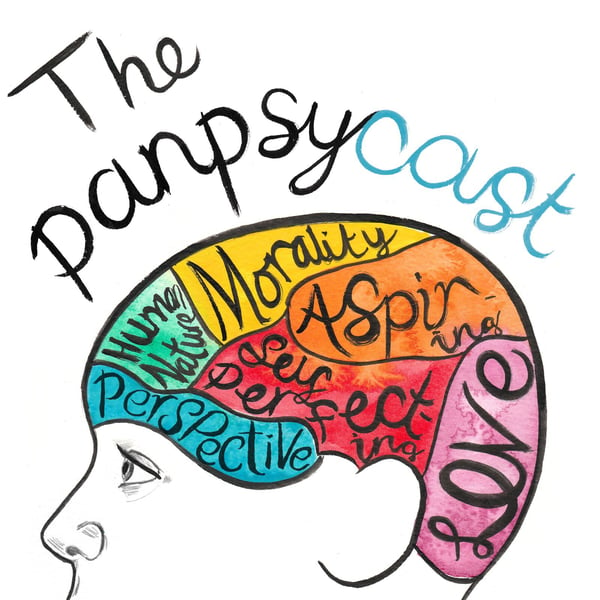Episode 47, Hedda Hassel Mørch: Consciousness and Integrated Information Theory (Part I)
The Panpsycast Philosophy Podcast
Jack Symes | Andrew Horton, Oliver Marley, and Rose de Castellane
4.8 • 604 Ratings
🗓️ 23 September 2018
⏱️ 66 minutes
🧾️ Download transcript
Summary
Hedda Hassel Mørch is a philosopher and post-doc at the University of Oslo, previously at The Center for Mind, Brain, and Consciousness at New York University. Dr Mørch’s research focuses on panpsychism, neutral monism and liberal conceptions of physicalism. More specifically, how such views can respond to problems in philosophy of mind and metaphysics, such as the hard problem of consciousness (namely, how does soggy grey matter give rise to technicolour experience), the problem of mental causation (how can the mind interact the world), and the metaphysics of causation (what does it really mean for one event to ‘cause’ another).
In this episode, we’re going to be discussing these topics with Hedda, but focus more specifically, on her views on consciousness and Integrated Information Theory. In Hedda’s own words:
"The nature of consciousness seems to be unique among scientific puzzles. Not only do neuroscientists have no fundamental explanation for how it arises from physical states of the brain, we are not even sure whether we ever will."
---
Contents
Part I. Integrated Information Theory.
Part II. Further Analysis and Discussion.
Transcript
Click on a timestamp to play from that location
| 0:00.0 | Please bear in mind that there is lots of technical language in this episode. If you're new to |
| 0:04.6 | Philosophy of Mind, we highly recommend listening to episodes 19, 25 and 36 to give yourself a strong |
| 0:11.9 | background going into this. This episode of the podcast is brought to you by New College of |
| 0:16.8 | the Humanities. To find out more about New College of the Humanities, you can find further |
| 0:21.2 | information in the iTunes description of this episode and our website. |
| 0:34.1 | Heather Haselmerk is a philosopher and postdoc at the University of Oslo, previously at the |
| 0:39.7 | Centre for Mind, Brain and Consciousness at New York University. |
| 0:44.1 | Dr. Merck's research focuses on panpsychism and integrated information theory. |
| 0:49.3 | More specifically, how such views can respond to problems in philosophy of mind and metaphysics, such as the |
| 0:55.0 | hard problem of consciousness, namely how does soggy grey matter give rise to technical or |
| 0:59.7 | experience, the problem of mental causation, how can the mind interact with the world, and |
| 1:05.5 | the metaphysics of causation. What does it really mean for one event to cause another? |
| 1:11.6 | In this episode, we're going to be discussing these topics with Heder, but focus more specifically |
| 1:16.4 | on her views on consciousness and integrated information theory. |
| 1:20.1 | In Heder's own words, the nature of consciousness seems to be unique among scientific puzzles. |
| 1:25.6 | Not only do neuroscientists have no fundamental explanation |
| 1:29.0 | for how it arises from physical states of the brain, we are not even sure whether we ever will. |
| 1:35.5 | In part one, we'll be discussing integrated information theory, and in part two, we'll be engaging |
| 1:40.4 | in some further analyses and discussion. We'll also be asking some listener questions. |
| 1:45.6 | Thank you to everybody who submitted them. If you want to ask our future guests questions, |
| 1:50.0 | you can follow us on Twitter. That's the PansaiCast. If you've got any other thoughts about this |
| 1:55.2 | episode, you can get in touch with this there as well. Thank you to all of our patrons. To support |
... |
Please login to see the full transcript.
Disclaimer: The podcast and artwork embedded on this page are from Jack Symes | Andrew Horton, Oliver Marley, and Rose de Castellane, and are the property of its owner and not affiliated with or endorsed by Tapesearch.
Generated transcripts are the property of Jack Symes | Andrew Horton, Oliver Marley, and Rose de Castellane and are distributed freely under the Fair Use doctrine. Transcripts generated by Tapesearch are not guaranteed to be accurate.
Copyright © Tapesearch 2025.

